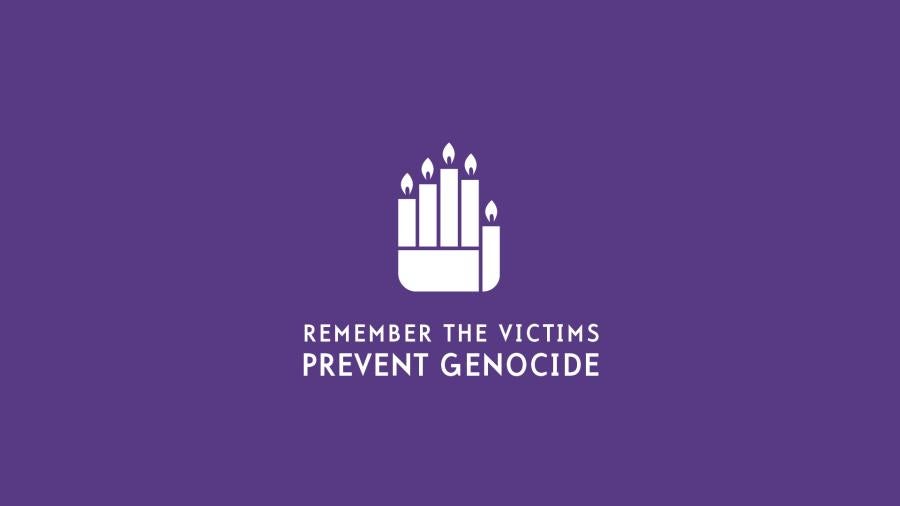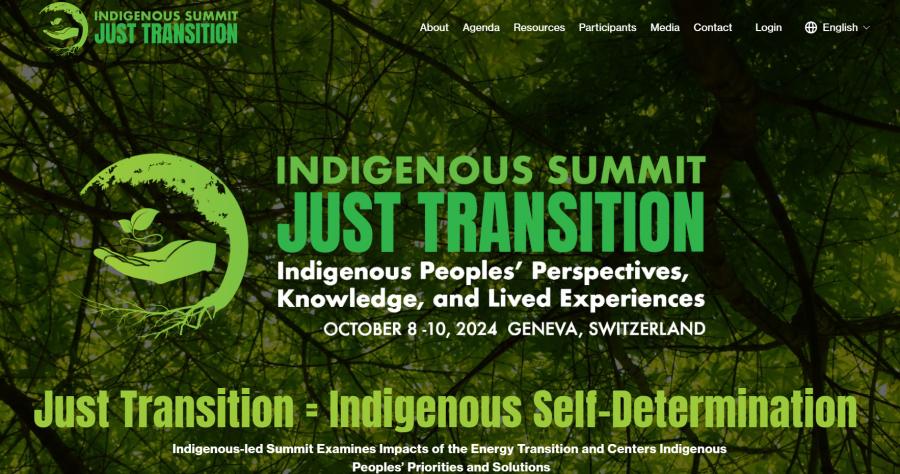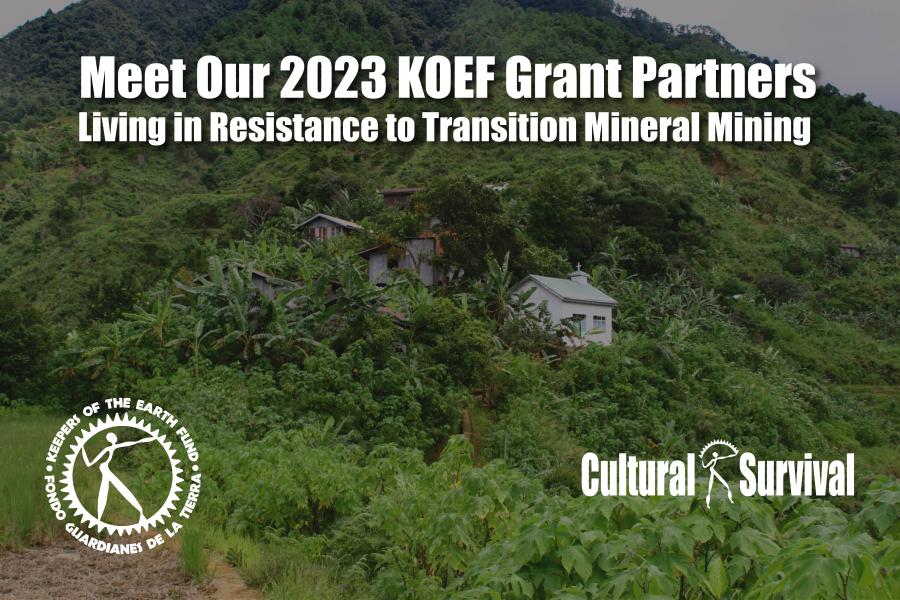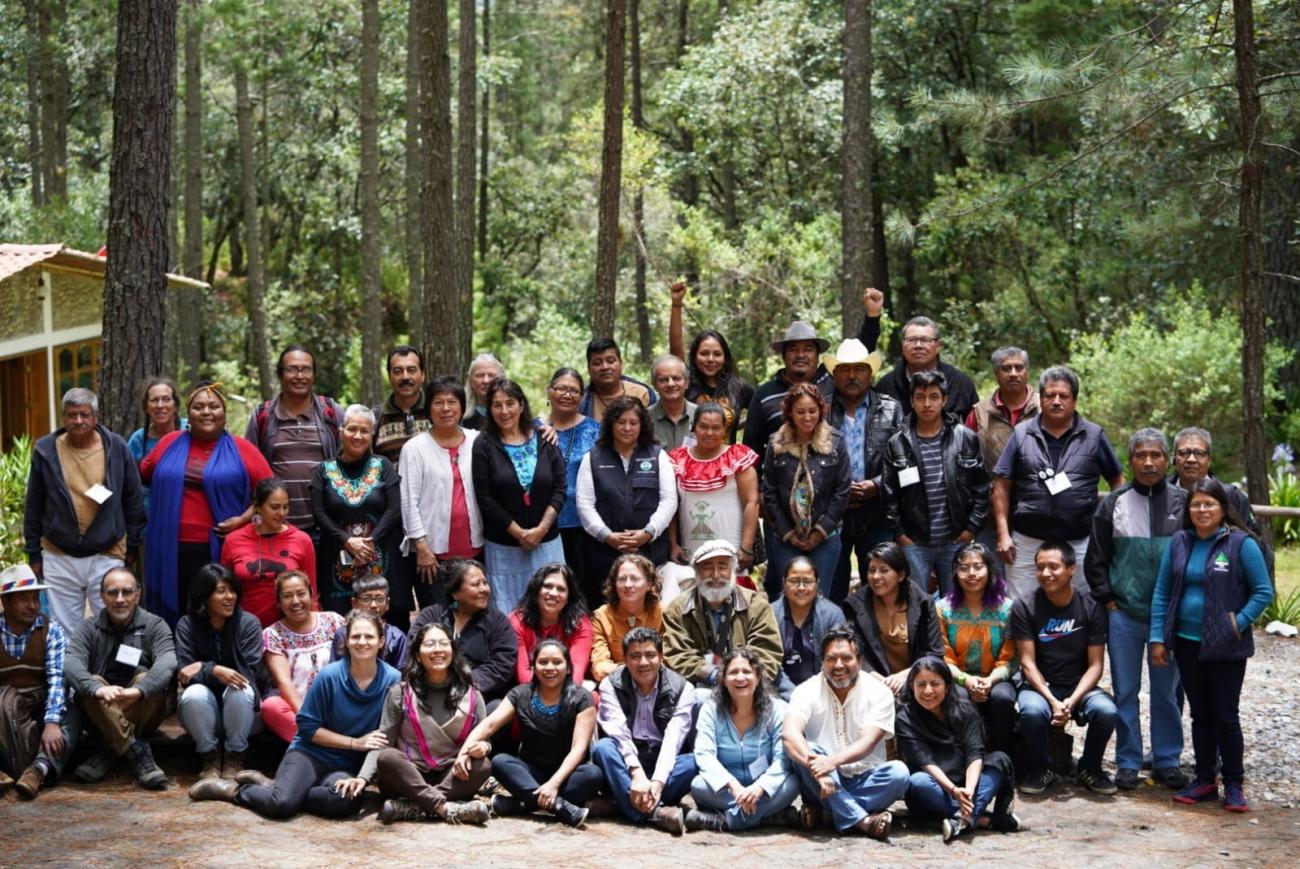
On August 24-26, 2018, more than 60 Indigenous community members and experts gathered to discuss climate change, traditional knowledge, and food sovereignty in Ixtlán de Juárez, Oaxaca, Mexico, at a convening organized by Cultural Survival and the International Indian Treaty Council, "Respecting Our Traditional Science and Ways of Knowing: Indigenous Peoples’ Sovereignty, Lifeways, and Climate Change.”
The goal of the convening was to engage in a dialogue on Indigenous perspectives of climate change from our traditional knowledge and science; how we understand, frame, and define climate change through our cultural practices and spiritual knowledge, and how we intersect with Western climate science. The issues, causes and impacts of climate change for Indigenous Peoples and their local communities were also discussion objectives. The meeting site, Eco-turixtlan, an eco-forestry project wholly owned by the local Indigenous community, was a source of great inspiration as issues of environmental stewardship, traditional knowledge, Indigenous science, climate science, and Indigenous rights were discussed.
In the keynote address, Diné elder and Tribal leader Duane ‘Chili’ Yazzie, provided a compass for our conversations over the next two days using the traditional emergence story of the Diné people, expressing the need for humankind to return to the “original instructions” of how to exist on this earth in spiritual relationship with Mother Nature.
The group dove into discussions of bio-cultural impacts of climate change. Berenice Sanchez (Nahua, Otomí) the first panelist, framed the discussion around the way Indigenous Peoples understand climate change; as holistic rather than parceled, and rooted in place-based experiences with the natural world.
A following panel discussed how to understand and present the causes of climate change from traditional Indigenous perspectives. The consensus gathered through discussions is that humankind’s spiritual relationship with mother earth has been deeply damaged in the prevailing Western neo-colonial culture, and that this separation of human beings from Mother Nature is a root cause of the current climate crisis we face.
In roundtable discussions, facilitators Daniel Pascual of Guatemala and Gabriela Linares of Mexico guided conversation about the important role of land rights in Indigenous Peoples’ work towards combatting climate change; the right to manage our traditional lands is an essential foundation upon which all of our lifeways, traditional knowledge, and wellbeing rests.
Other presentations gave specific examples of communities working sustainably towards food sovereignty, in ways that benefit both the earth and local economies. These included shade-grown coffee, seed saving and the promotion of Indigenous plant foods and medicines, and networks and support for small farmers. In one example, an Indigenous and small farmers cooperative in Tlaxcala Mexico who found their crops plagued by grasshoppers creatively solved their problem by returning to traditional practices of harvesting the grasshoppers for consumption.
In the evenings, social and cultural events provided space for local producers to discuss their practices in growing and producing their products. This included producers of shade grown organic coffee, producers of wild-harvested mezcal, a palm-fiber basket weaver cooperative, and textile producers who protect and sustainably harvest an endangered species of snail to dye cotton thread a deep purple color considered sacred to their community.
Last discussions focused on advocacy that effectively builds communication and connections from the local to the global and global to local to provide access to information and to incorporate Indigenous Peoples’ traditional knowledge on food sovereignty and climate change. The panels included seasoned as well as emerging Indigenous leaders in international spaces like the United Nations Framework Convention on Climate Change, the Center for Biological Diversity, the United Nations Permanent Forum on Indigenous Issues, and the High Level Political Forum on the Sustainable Development Goals. They discussed the ways Indigenous Peoples' issues and knowledge is included in high-level meetings and the challenges of lack of inclusion.
Concluding the convening, a consensus-based Outcome Document (below) developed outlined the participant’s perspectives and position on Indigenous Peoples' rights and responsibilities regarding climate change, traditional knowledge, and food sovereignty.
Outcome Statement of the “Respecting Our Science and Ways of Knowing: Indigenous Peoples'Food Sovereignty, Traditional Lifeways and Climate Change” Convening, Ixtlan de Juarez, Northern Highland Zapoteca Territory, Oaxaca Mexico
Indigenous Peoples from North, Central and South America, as well as the Arctic gathered in Ixtlan de Juarez, Northern Zapoteca Territory, Oaxaca Mexico, from August 24-26, 2018, at the “Respecting Our Science and Ways of Knowing: Indigenous Peoples Food Sovereignty, Traditional Lifeways and Climate Change” convening. We express thanks to our hosts, the traditional authorities and community of Ixtlan de Juarez, who provided their beautiful Ecourixtlan community center in the mountains of Northern Oaxaca for our gathering.
We thank the Nahuatl ceremonial leader who opened our gathering with prayers, recognition and gratitude for the Creator, Mother Earth, the four Directions and all the sacred, beautiful gifts of Creation. We also thank Cultural Survival and the International Indian Treaty Council for organizing this gathering which provided us with an important opportunity to share our Indigenous stories, teachings, experiences, spiritual understandings and scientific knowledge about the phenomenon now called climate change, its causes, impacts and solutions, based on our own ways of knowing. Our stories and science confirm that the climate has always changed, in natural cycles. We have been able to adapt as needed. However, the swift moving extreme impacts of human-produced climate change are producing critical challenges for our survival.
Based on what we have heard, learned and shared, we adopt by consensus the following:
1. In our cause we are of one heart and one mind in defense of our Mother Earth. There are many stories we have as Indigenous Peoples. They are different stories, but they have a commonality. They teach us how to live in harmony with the natural world and with each other, to not be greedy or take more than we need. These stories, passed down to us by our ancestors, tell us what can happen if we do not follow the original instructions. They also offer solutions through the ceremonies, stories, songs, practices, seeds, plants, and animals that we need to return our Peoples and the world to balance and good health. It is up to us to continue, and where needed, to revitalize these practices and to ensure that they are passed down to our children and our coming generations.
2. We recognize the extreme crisis that we are facing through our Indigenous science and ways of knowing, and the realities we are living “on the ground”. If we agree to share this knowledge for the good of all humanity, it must be based on respect for our rights and the commitment by countries to implement real changes in their methods of production and concepts of development.
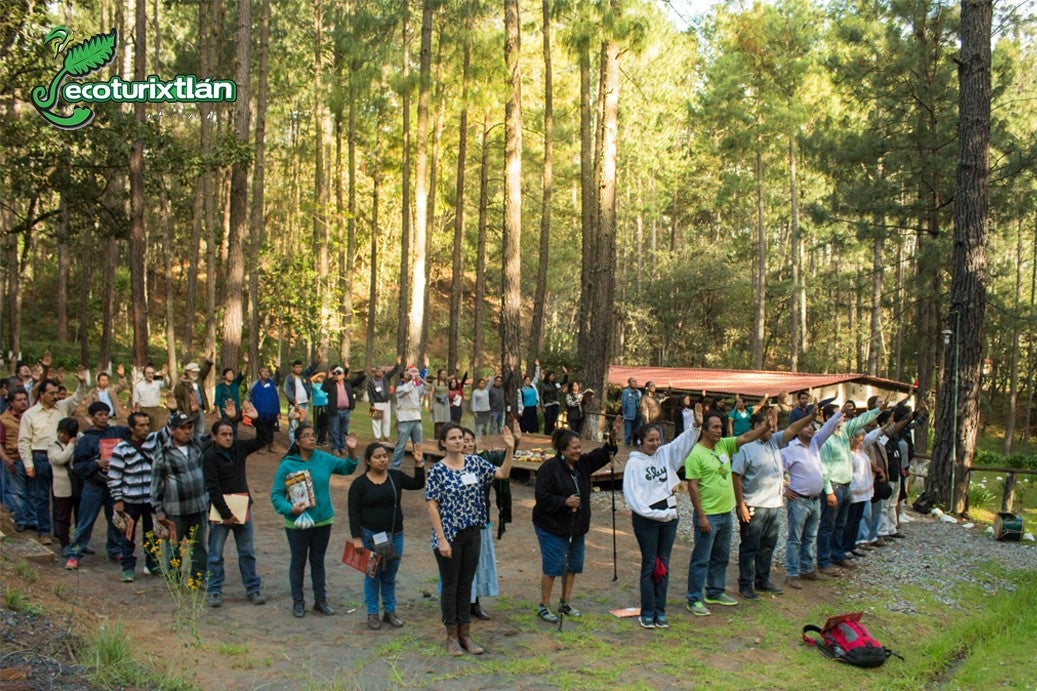
3. We demand that the countries hold corporations accountable for the damage they have done in our homelands, enforce human rights standards for business activities, halt imposed development and resource extraction in Indigenous lands and territories, respect the collective rights of Indigenous Peoples, and implement a just transition to sustainable energy and food production methods that are culturally, spiritually and environmentally appropriate.
4. We reject and denounce the continued criminalization by countries and corporations of the defenders of Human, Treaty, Environmental, and Indigenous Peoples Rights. We demand full and effective access to justice for these defenders and for all Indigenous leaders and communities facing repression, threats, criminalization, imprisonment, assassination, forced disappearances, displacement, imposed development, resource extraction, and other violations of their rights.
5. We confirm that our Food Sovereignty is based on our fundamental relationships, responsibilities and rights to our lands and territories, plants, seeds, animals, water and other essential life-giving elements. The abundance of natures’ biodiversity is defined and nurtured by the cultural understandings, languages, and ancestral practices that have sustained us as Indigenous Peoples since time immemorial.
6. We affirm that Food Sovereignty, as a rights-based approach focused on small-scale culturally-appropriate food production, is a pre-condition for Food Security as affirmed in the Declaration of Atitlan. We recognize that Climate Change poses a major threat to our Food Sovereignty and traditional food systems which requires our immediate, collective response. We reaffirm the vital role of our traditional food ways, sources, eco-systems and cultural practices which have maintained the natural balance and the health of our communities. They will also be the basis of our adaptation, mitigation and survival strategies.
7. We affirm the importance of continuing to hold gatherings, such as this one, where Indigenous Peoples and our allies can share the impacts as well as solutions -- including methods, seeds, stories and teachings -- with one another. We also reaffirm the important role of our Indigenous community in developing and disseminating information and education about these issues.
8. We recognize that the plants and animals which are our traditional foods and medicines such as corn, mushrooms, quinoa, potatoes, reindeer and salmon, possess their own knowledge, teachings and instructions which they are willing to share with us if we know how to listen to their voices. Likewise, the traditional ecosystems, including the forests, deserts, mountains, oceans, rivers, tundra and wetlands which we call our homes are vitally necessary for maintaining the Earth’s ability to mitigate climate change. We must protect them, for their survival and our own.
9. We reject industrial models of so-called climate solutions such as carbon trading, forest and other types of carbon offsets, “clean coal”, “sustainable/green mining”, nuclear power, bio- and geoengineering, waste gasification among other false solutions. Science confirms that only by dramatically reducing carbon emissions produced by fossil fuels, deforestation, industrial farming and other sources, will halt the accelerating rates of greenhouse gasses in the atmosphere which cause Climate Change. The dire impacts already include ocean warming and acidification, rising sea levels, massive forest fires, extreme and unpredictable weather conditions including droughts, and floods among others. The extinction of culturally-vital food species, such as salmon are also threatened.
10. We reconfirm the collective position of Indigenous Peoples that culture is an essential pillar of sustainable development, as endorsed by Indigenous Peoples during Rio + 20, the UN Sustainable Development Goals process and the 21st Conference of the Parties of the UN Framework on Climate Change.
11. We affirm that upholding Indigenous Peoples’ rights to traditional knowledge and cultural heritage, free prior and informed consent, full participation in decision-making, lands and territories and self-determination together with all the other rights affirmed in the UN Declaration of the Rights of Indigenous Peoples, is a requirement for implementing global, national and local solutions to Climate Change. In our firm view, Indigenous traditional knowledge holders and practitioners, Indigenous youth who face the most serious impacts, and Indigenous women, who have an essential role in food production and knowledge transmission, must be included as essential participants in these discussions at all levels. We also call for increased access for Indigenous communities to international bodies, processes, treaties, and declarations that affect their rights and ways of life including necessary information for their informed participation.
12. We affirm that the creative strategies and adaptive innovations required to ensure survival for our Peoples and future generations will be developed and implemented first within and among Indigenous communities based on our own ways of knowing and being. These grassroots, community-based strategies and innovations can then be transmitted to impact policy change at the national and international levels. Examples presented at this gathering include original seed repositories/sanctuaries, pesticide-free insect control methods, inter-tribal and cross-border seed exchanges, youth training and capacity building programs, organic farming cooperatives, original ecosystem restoration, rainwater harvesting, sustainable reforestation and forest management, community eco-system monitoring, and solar food drying and storage. Community education involving youth, elders, tribal leaders and the entire community is also vital to build engagement, knowledge and understanding.
13. We recognize and congratulate the Indigenous Peoples, communities and organizations which, in the face of many adversities and hardships, continue to implement innovative projects, programs and institutions using traditional methods, structures, and principles as well as our own definitions of sustainable development and well-being. In this way we are working to restore and strengthen our traditional food systems, defend our rights, transmit knowledge to new generations, implement self-determination and self-governance, carry out sustainable land and resource management, uphold our Treaties and provide a healthy way of life for our families, communities and Nations. These achievements provide inspiration and practical models for other Indigenous and non-Indigenous communities seeking solutions. We also express our support and solidarity for those Indigenous Nations, Peoples and communities which have declared their territories to be Indigenous Food Sovereignty Zones that are free from or prohibit GMOs, pesticides and extractive industries, and other destructive activities, so that traditional varieties can be protected and cultivated.
14. While we reject “extractive research” carried out without our free, prior and informed consent, we value the contributions of the western science including biologists, medical doctors, geologists, atmospheric researchers and others who are willing to collaborate with us to share data and studies about the growing threats posed by the climate crisis. We agree to work with them to add to our mutual understanding based on mutual respect and recognition of our distinct Indigenous scientific knowledge systems and our rights to cultural heritage and genetic resources.
15. We call on governments and decision-makers at the tribal, community, municipal, national and international levels, to listen to the Western and Indigenous scientific communities, and traditional knowledge holders, to make informed, wise decisions, to halt the policies and practices of imposed resource extraction that continue to accelerate Climate Change with devastating results. As human beings, we are all on the front lines of this struggle. We all share the responsibility for immediate action.
We commit to remaining strong in the struggle for survival that is called Climate Change. The forces that have created this crisis and which continue to carry out their destructive activities are many and powerful. But we are powerful too and our power comes from being who we are, sharing and supporting one another, and following our original ways, teachings and instructions as caretakers of the natural world. We will retain our Indigenous teachings and pass them to our grandchildren, so that all the grandchildren of the world can live.
Adopted by consensus on August 26, 2018 in Oaxaca, Mexico
